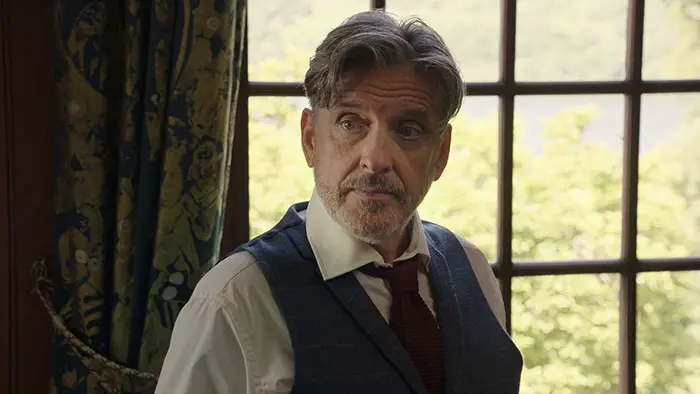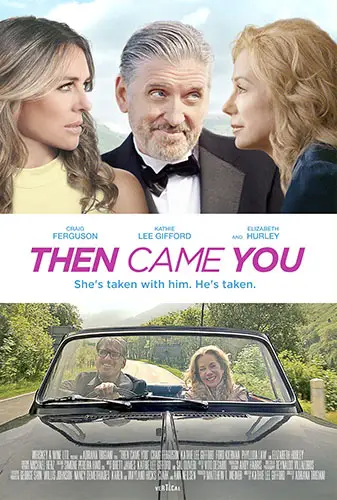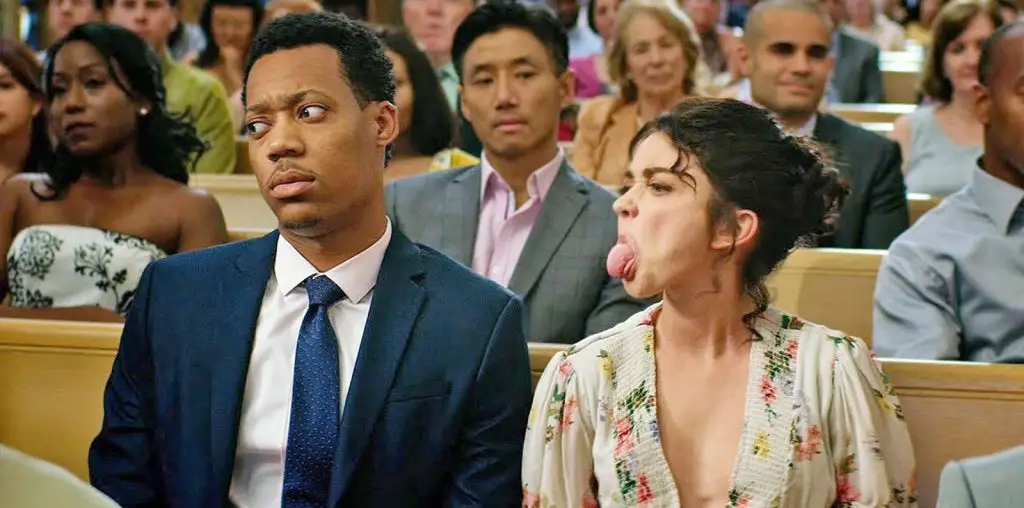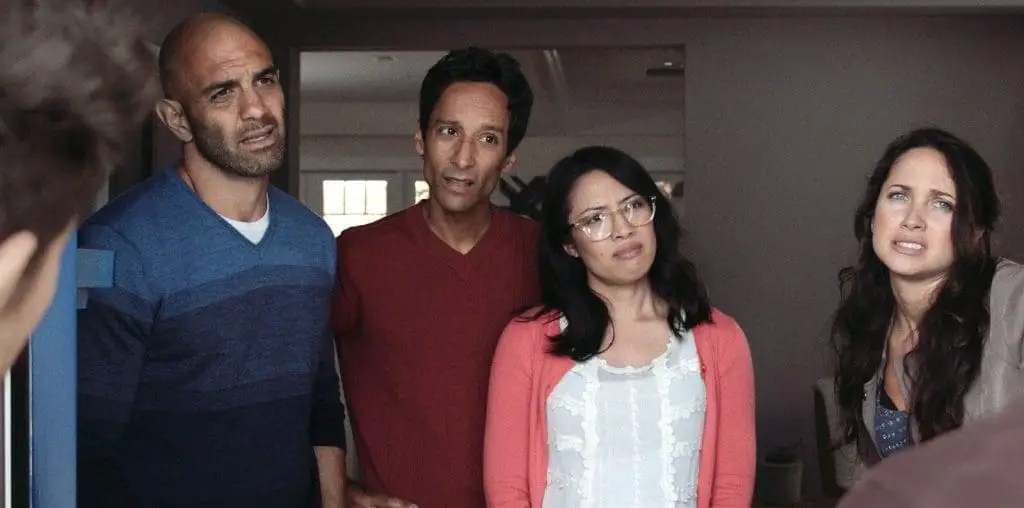
Annabelle thinks of herself as “completely ordinary, in every way,” however, Gifford’s natural charisma and class make her anything but. She shines but is almost outshone by her outfits, which get increasingly ridiculous and fabulous (she pulls them off, despite Howard’s snarky comments). Ferguson also has a surprisingly robust screen presence, although his character is a bit of a brute. Their rapport is a pleasure to behold, at least for the most part. Elizabeth Hurley comes and goes without leaving much of an impression.
For a first-time screenwriter of a feature-length romantic comedy, Gifford steps up to the task. Zingers abound, ranging from smile- to groan-inducing. “Your railroads are really lovely,” Annabelle tells Howard. “They’re not mine,” he retorts. “There are over seven million sheep in Scotland. And five million people. I prefer the people,” Howard deadpans. “Why do you have women’s boots in your boot?” Annabelle asks. There’s a lengthy confusion over the cultural connotation of the word “spunk.”

“Their rapport is a pleasure to behold…”
It’s not all gravy. If you’re allergic to sentimentality and cheesy montages, stay clear. A sub-plot involving ancestral revelations feels tacked-on and unnecessary, while an impromptu black-and-white nod to Hollywood films of yore is jarringly off-putting. The ending seems to happily reiterate that money is the answer to all problems, which leaves a bit of a sour taste. Then Came You never quite escapes its made-for-TV feel either.
Gripes aside, if you’re looking for a low-key, old-school, charming-as-a-basket-of-kittens lark, give Then Came You a shot. It serves as a great reminder of Gifford’s prodigious talents and as a hint that she may yet have more to reveal.

"…a low-key, old-school, charming-as-a-basket-of-kittens lark..."


